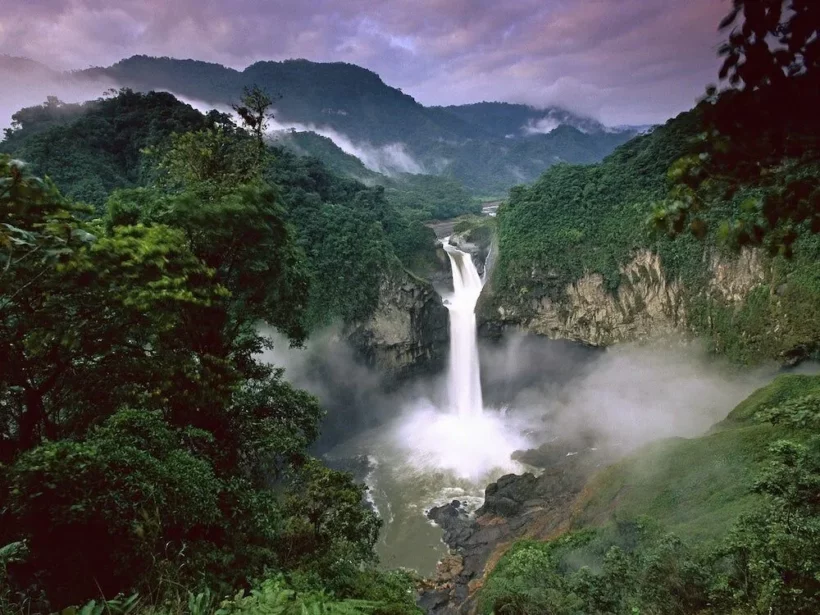Ecuador’s Yasuní National Park is home to one of the most biodiverse concentrations of plant and animal life on Earth. In an historic vote of nearly 60 percent in favor, Ecuadorian citizens chose to stop the development of new oil wells in the park, the country’s National Electoral Commission said.
By Cristen Hemingway Jaynes
Approval of the referendum means about 726 million barrels of oil will stay in the ground, reported The Guardian.
The park is also the home of three of the last “uncontacted” Indigenous communities on the planet, the Taromenane, Tagaeri and Dugakaeri people, who live in voluntary isolation, Reuters reported.
By passing the referendum, Ecuador became one of the first nations to vote to restrict the extraction of resources. The measure was passed during the first round of the country’s presidential elections.
“Today is a historic day! As a Waorani woman and mother, I feel overjoyed with Ecuadorians’ resounding decision to stop oil drilling in my people’s sacred homeland,” said Nemonte Nenquimo, an Indigenous Waorani leader and Goldman Environmental Prize winner, as reported by The Guardian. “Finally, we are going to kick oil companies out of our territory! This is a major victory for all Indigenous Peoples, for the animals, the plants, the spirits of the forest and our climate!”
Yasuní National Park became a UNESCO world biosphere reserve in 1989. The biodiversity hotspot consists of 2.5 million acres that are home to 121 reptile species, 139 amphibian species and 610 bird species.
Ecuador’s Ministry of Environment and Water said 2.5 acres in Yasuní contains 650 tree species and hundreds of animal species, Reuters reported.
“This referendum presents a huge opportunity for us to create change in a tangible way,” Helena Gualinga, an Indigenous rights advocate, told CNN.
Citizens of Quito, Ecuador’s capital city, voted in another referendum to stop gold mining in the highland biosphere of Chocó Andino, located nearby.
“This victory shows that we humans are taking action to save our planet during these times of climate crisis,” said Leonidas Iza, president of Conaie, Ecuador’s umbrella Indigenous federation, reported The Guardian.
Passage of the referendum to protect Yasuní means state oil company Petroecuador has one year to stop production and will mean the loss of approximately 12 percent of the country’s output of crude oil, Reuters reported.
In a social media post, Petroecuador said it would comply with the decision of the voters.
“We will follow up to make sure the government respects the decision of the Ecuadorean people,” said Juan Bay, president of the Waorani Indigenous community, at a press conference in Quito, as reported by Reuters. “We have saved the greatest biodiversity and we have saved the communities in voluntary isolation.”
Presidential hopeful Luisa González, who was in the lead after the first round of votes, said on a local radio show that by banning oil extraction in Yasuní, not only will income be lost, but indemnity payments will have to be made to companies.
“Those indemnifications could cost $15 billion,” said González, as Reuters reported. “We need to review to see how we’ll get out, what contracts there are, how they will close. It’s a complicated scenario.”
Last year, mining brought in $2.8 billion and was Ecuador’s fourth biggest income source after bananas, oil and shrimp.
Waorani leader Ene Nenquimo said the victory represented years of suffering by Indigenous communities.
“The fight is not just today but years-long,” Nenquimo said, as reported by Reuters.






